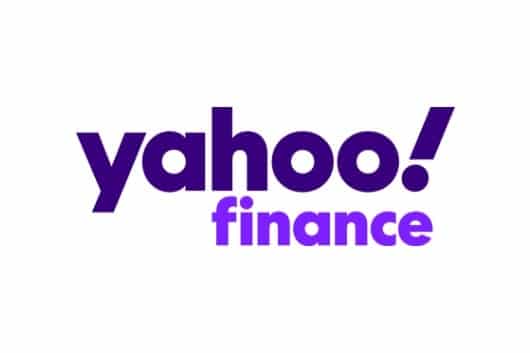Table of contents
 Commercial trucks are used by entrepreneurs in many industries across the country for many different purposes. Their power and size make them one of the best options for transporting materials, products, or people from point A to point B, but the cost of these assets can complicate your cash flow if you suddenly need to repair a vehicle or purchase a new one entirely.
Prices range from $90,000 to $200,000+, which isn’t something that most entrepreneurs can afford at a moment’s notice. But, if you rely on these vehicles for critical tasks in your business, operating without them can be just as costly, and it’s only a matter of time before you start to see the repercussions of the downtime in your profit margin.
Financing exists for this very purpose. Rather than shell out an enormous upfront cost, you can break down the price of your commercial vehicle into manageable payments that work for your schedule. It essentially increases your purchasing power and preserves your cash flow, but you should be careful about the terms you agree to.
Each lender will see your business differently and offer different rates, terms, and capital amounts based on your business’s financial information. Some may review your information and offer you favorable terms, whereas others may view your operation as “risky” and decline your application. The only way to ensure you’re getting the best deal on your commercial truck financing is to shop around and apply with multiple lenders.
Don’t worry; We have you covered. Here’s everything you need to know about commercial truck financing options for business owners, so you can make an educated decision for your business that allows you to grow with confidence.
Commercial trucks are used by entrepreneurs in many industries across the country for many different purposes. Their power and size make them one of the best options for transporting materials, products, or people from point A to point B, but the cost of these assets can complicate your cash flow if you suddenly need to repair a vehicle or purchase a new one entirely.
Prices range from $90,000 to $200,000+, which isn’t something that most entrepreneurs can afford at a moment’s notice. But, if you rely on these vehicles for critical tasks in your business, operating without them can be just as costly, and it’s only a matter of time before you start to see the repercussions of the downtime in your profit margin.
Financing exists for this very purpose. Rather than shell out an enormous upfront cost, you can break down the price of your commercial vehicle into manageable payments that work for your schedule. It essentially increases your purchasing power and preserves your cash flow, but you should be careful about the terms you agree to.
Each lender will see your business differently and offer different rates, terms, and capital amounts based on your business’s financial information. Some may review your information and offer you favorable terms, whereas others may view your operation as “risky” and decline your application. The only way to ensure you’re getting the best deal on your commercial truck financing is to shop around and apply with multiple lenders.
Don’t worry; We have you covered. Here’s everything you need to know about commercial truck financing options for business owners, so you can make an educated decision for your business that allows you to grow with confidence.
What Is Commercial Truck Financing?
Commercial truck financing involves securing capital from an outside source to assist with the purchase of a commercial truck. It’s essentially a specialized type of financing that only applies to commercial vehicles and trucks, but there are alternative options available if you need capital for other business purposes as well. Financing a commercial vehicle is different from leasing one. If you finance the vehicle, you maintain ownership of the asset at the end of the repayment period, whereas you have to return the truck to the leasing company if you decide to lease it. Financing is usually a better option in the long run because of this, but it’s not for every set of circumstances. Once you determine that you’ll use commercial truck financing, you’ll begin searching for lenders that offer this type of solution. There are many lenders out there, but most people’s first stop is the bank or credit union they do business with. However, bank financing is notoriously complicated, with rigorous eligibility requirements, restricted industries, and external factors, such as the economy, playing a role in reaching an approval. If you’re having trouble financing through your bank, you can always use alternative lenders to secure the capital you need to accomplish your goals. These lenders are more modern, have faster funding times, and come with looser eligibility criteria, but there’s one catch—higher interest rates. Exploring your options and comparing your offers is the best way to ensure you’re choosing the best rates and terms for your business. You’ll need to apply to multiple lenders to receive multiple offers, so make sure to allot time for this stage in the process when you’re planning your commercial truck financing.Types of Commercial Truck Financing
Commercial truck financing is broken down into different subcategories, including term loans, lines of credit, equipment financing, and more. The benefits of each option will differ depending on your circumstances and the terms you’ve agreed to, so make sure to carefully consider which type of financing you’ll use to purchase your assets. Here’s a breakdown of the most popular commercial truck financing options.Commercial Truck Term Loans
Term loans are given in a one-time lump sum payment to the borrower. You’ll repay the funds over a set schedule outlined by your lender, with some of your payments going toward the interest on the financing. The lender will likely want to hear more about the truck you’re planning to buy, so make sure to come prepared with as much information as possible to ensure the process moves as smoothly as possible.
Commercial Truck Lines of Credit
Business lines of credit are one of the most flexible financing options available to entrepreneurs in any industry. Once you establish your credit line with a lender, you can draw funds on an as-needed basis up to an agreed-upon limit. You only pay interest on the amount you draw, too, so you won’t have to worry about paying interest on unused funds. However, while this type of financing offers numerous advantages, interest rates are generally higher than other types of financing, especially if you have a limited time in business or a less-than-favorable credit score.
Commercial Truck Equipment Financing
This option is one of the more popular ways entrepreneurs finance commercial truck purchases. Basically, you find an asset that you want to purchase and bring that information to a lender. If your application is approved, the lender will front the money to pay for the equipment to the vendor, and you can start using the asset in your business. You’ll repay the borrowed amount to your lender, and at the end of your repayment, you’ll maintain sole ownership of the asset.
Alternatives to Commercial Truck Financing
You don’t necessarily have to leverage a commercial truck financing option to fund the purchase of a commercial vehicle. Other solutions, like revenue-based financing, can yield the capital you need to afford the assets you need. Here’s a breakdown of a few choicesRevenue-Based Financing
Revenue-based financing leverages your future sales for cash in the short term. Accounts receivable factoring, purchase order factoring, and business cash advances all fall under this category. Funding amounts are determined by your future sales, too, so you should expect approvals that mirror your monthly/annual revenue.
Asset-Based Lending
This type of financing involves putting up an asset as collateral in exchange for capital. Your business’s financial information also plays an important role in determining your rates and terms, but the asset significantly reduces the lender’s risk of financing your business, leading to higher funding amounts and better terms. You can offer real estate, inventory, or other vehicles as collateral for this type of financing.
SBA 7(a) Loans
SBA loans are some of the most popular financing solutions available to entrepreneurs. With high funding amounts (up to $15 Million) and favorable terms, it’s no surprise that most entrepreneurs will consider this option before others, but you should be aware of the rigorous eligibility requirements. However, if your business meets these qualifications, you can use the funds for almost any business purpose, including the purchase of a commercial truck or other vehicles.





